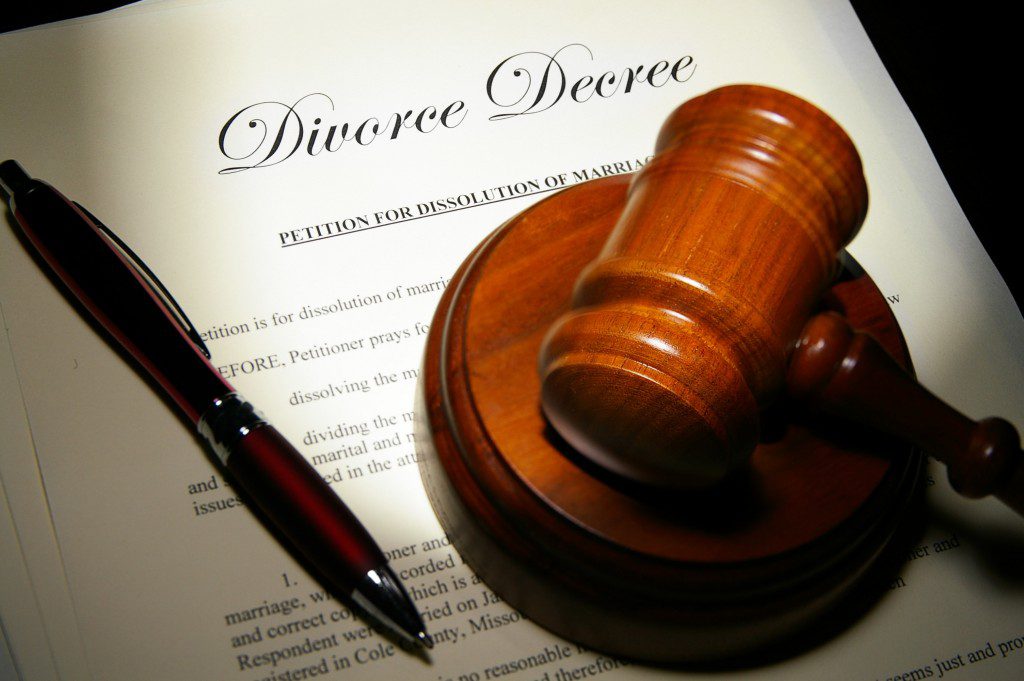(815) 207-9570
Call to schedule an initial consultation
How Does the Illinois Divorce Process Work?
Initial Divorce Papers
A divorce in Illinois begins when one spouse files a Petition for Dissolution of Marriage. This is the initial document of the divorce papers to open a divorce case in the court system. Depending on the nature of the pleadings in the Petition, this petitioning spouse may be asking for various types of relief under Illinois law, including but not limited to maintenance, a custody arrangement, child support, a division of marital property, or other relief.
What do I have to do when a divorce has been filed against me?
You must file what is called an “appearance” at the courthouse. To do this, you would go to the clerk’s office at the county courthouse where the Petition for Dissolution was filed, and pay a fee to show that you will be participating in the divorce proceedings. This fee varies depending on the county, and is generally around $150 to $200. This is a fee which is paid directly to the court, and which must be paid whether you hire an attorney or not. Also, you must file a “Response” to the Petition for Dissolution of Marriage. This is paperwork that is written in response to the Petition that your spouse had filed against you. It would contain your responses to the allegations in the Petition and the relief that you would be asking for under Illinois divorce laws. It is important to note that once you have been served with a Petition, you will generally have 30 days in which to file an appearance and a response. If you do not, the judge may order a “default judgment” against you, meaning that the relief requested by your spouse in the Petition could be automatically granted.
Exchange of Financial Information
Next, the parties commonly request an exchange of financial information. Upon request, both parties will be required to fully disclose their incomes, assets and debts. This information is required to fairly determine how the marital property should be distributed under Illinois law. The process for requesting this information is called Discovery, and can be initiated through requests in writing, or face-to-face interviews under oath with the spouses, called depositions. If the parties are in agreement on all matters related to the divorce, they have the option of skipping the discovery process, though some minimal exchange of financial information is typically required.
Settlement, or Hearing
Depending on the relief that each party is asking for, the case may then proceed to settlement negotiations, or may proceed to hearing on any of the pending issues. A hearing is when both parties appear in front of the judge to dispute a pending issue on the case. Arguments are made by both sides, and evidence may be presented. The judge then makes a final ruling, which can become an official Court Order which must be complied with by both parties.
Another option to resolving any contested issue is to schedule a Pretrial conference with the judge. This is an informal hearing where both parties’ attorneys have a private conversation with the judge, often in the judge’s chambers outside the court room. At this hearing, both attorneys present evidence and their respective clients’ issues to the judge. The judge then states how he or she would rule on these issues if the matter actually proceeded to a formal hearing. The judge may also make recommendations for how to settle the case. The purpose of a Pretrial is to facilitate settlement, so that the parties can resolve the matters without expending the costs and resources of proceeding to a full hearing.
If the matters go to hearing, the judge will make the final decision as to what relief will be granted to the parties. If the parties come to an agreement on all matters, then detailed documents will be drafted outlining the agreed matters between the spouses. For the divorce matters, the document drafted will be a Marital Settlement Agreement. For custody matters, the document will be a Parenting Plan. These documents are often referred to as a divorce decree, or divorce papers, and will be signed by both parties.
Finalizing the Divorce
Next, the case will be set for prove up. This is the last court date on which the judge will approve the signed documents and the divorce will be finalized. At this court date, the parties step before the judge, and are asked to confirm that they both agree to each of the terms of the Marital Settlement Agreement and Parenting Plan. After these documents are approved by the judge, they will be entered into an official Court Order, and the divorce will be finalized.
With the Marital Settlement Agreement and Parenting Plan now being part of a Court Order, both parties will be required to comply with all the terms within. If one party does not, he or she may be in violation of the Court Order, and the other ex-spouse can bring the case back before a judge to enforce the terms of the Order.
(815) 207-9570
Call to schedule an initial consultation
If you have questions about how to get a divorce in Illinois and wish to schedule a consultation with an experienced and dedicated family law attorney serving Will County, Dupage County or Kendall County, call Navarro Family Law today at (815) 207-9570.
The information on this site is not legal advice. Retain an attorney licensed in the state which has jurisdiction over your matter before taking any action which affects your legal issues, legal marital status or custody arrangements, and follow the advice of your retained lawyer.
